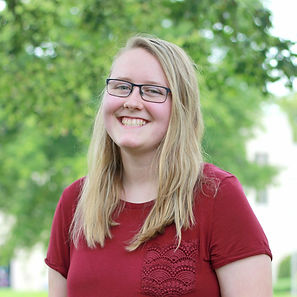It’s no secret that politics can be divisive.

For every issue, individuals have stances on completely opposite sides of the aisle, creating opportunities for friction to develop.
On second thought, “friction” may be a gross understatement.
The 2016 presidential election came just a few months after I turned 18. While I certainly remember the presidencies of George W. Bush and Barack Obama, I did not pay nearly as much attention to the rhetoric of the electorate.
Enter the 2016 campaigns. Candidates of opposing parties hurled insults at each other and American voters did much the same.
Suffice to say, the hostile political climate did not make for a pleasant first Election Day. So much for starting newbies off easy.
The problem seems to have escalated during President Donald Trump’s first two years in office. In-person or social media interactions in which individuals can express divergent views and still have a productive, meaningful conversation have become increasingly rare.
Too often, people share their stances on polarizing issues and are immediately condemned by the other side.
As much as I would like to discuss pertinent political issues on Facebook and Twitter, I don’t want to face fallout due to differing viewpoints. My mom has even advised against starting political conversations at gatherings for the sake of familial peace.
I’m not demanding that my extended family discuss funding for the border wall over Christmas dinner, but why assume that any political conversation will promptly turn sour?
Discussion plays a vital role in the perception of current events. We cannot be content to let labels of “Republican,” “Democrat” and the like stifle interesting, intelligent conversation.
I would be infinitely more likely to get involved in public discourse if I knew I wasn’t likely to be called “snowflake” or “libtard” or told that I need a safe space because my ideologies align more with the left.
And, let’s be clear, I think both sides bear some responsibility for what has transpired.
I want to be able to ignore partisan divides and instead discuss the issues at hand and the thought process that goes into choosing a stance.
I admit that this can be difficult to do; I personally struggle with separating party and person on occasion.
But, we all have to recognize that we won’t get anywhere as a country if we choose to replace productive debate with nonsensical name-calling and an unwillingness to consider opinions other than our own.
Some people choose to stay above the fray and disregard political bickering, both on Facebook and on Capitol Hill, altogether.
I can’t say I blame them. Debating and reading about the current state of affairs can be exhausting and, in the “right” threads, downright derogatory.
However, shunning politics in favor of silence also does the U.S. a disservice.
We have a responsibility to know what’s going on; even if we as individuals are seemingly unaffected by new state and federal legislation, our vote can directly influence the lives of many others. (And, truthfully, we’re probably underestimating how much we will be impacted.)
A little research goes a long way.
So, get informed and get involved! Try to reach across the aisle and have positive interactions with those who are nowhere near you on the political spectrum.
Encourage people to have constructive conversations, and talk through issues rather than setting a goal of persuading others to adopt a completely new outlook or ideology.
Regrettably, the attempt to find common ground between political parties has largely been abandoned, replaced by intense argument on both sides.
It currently seems as though the 2020 presidential race will maintain much of the mutual disdain found in the 2016 campaigns. I don’t know that the U.S. can afford to have a repeat of 2016.
How we interact with each other has the power to change national behavior. Let’s commit to being better together.
It’ll take more than just one snowflake to have a true snowball effect.
Kristen Buchler is a third-year English student.

